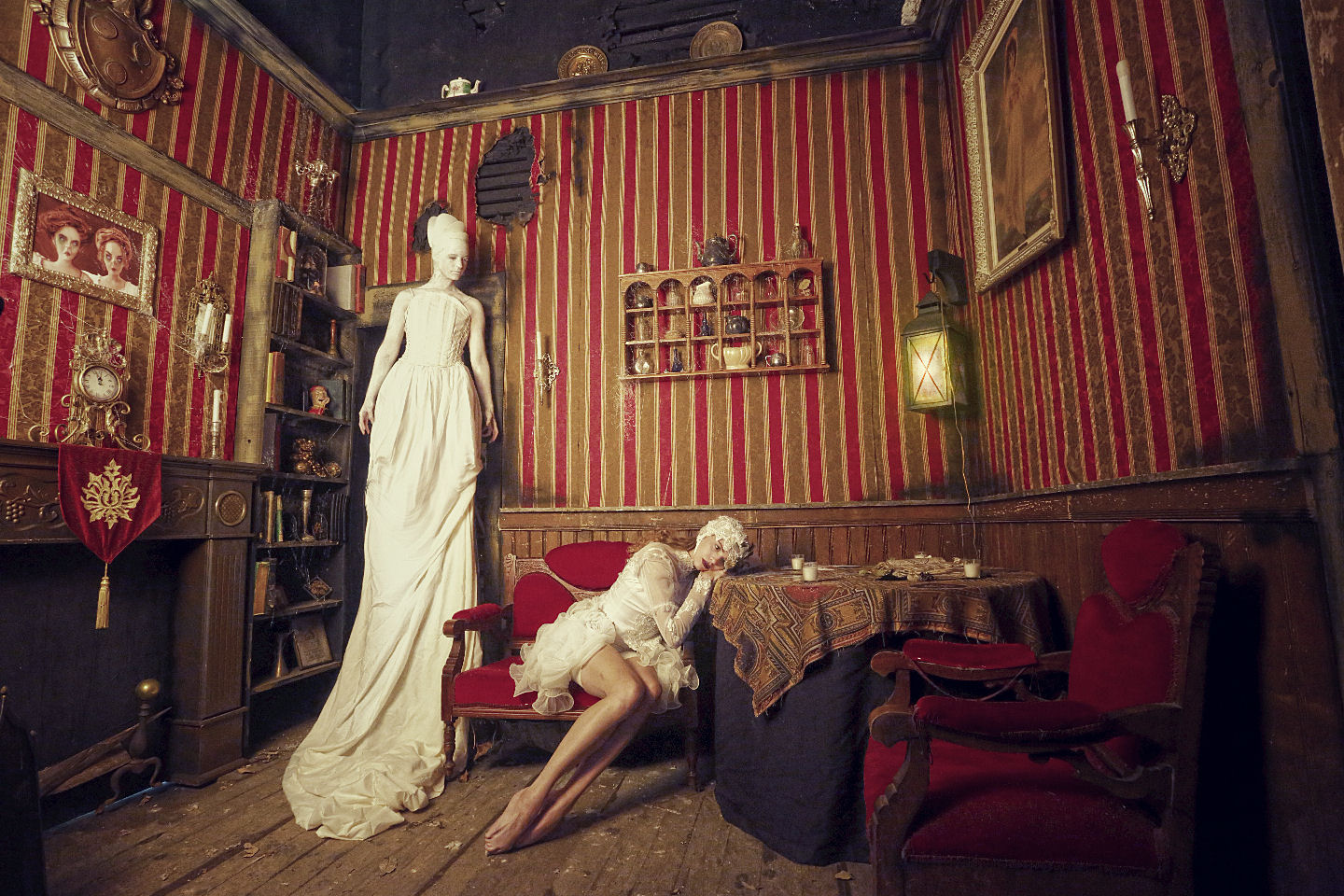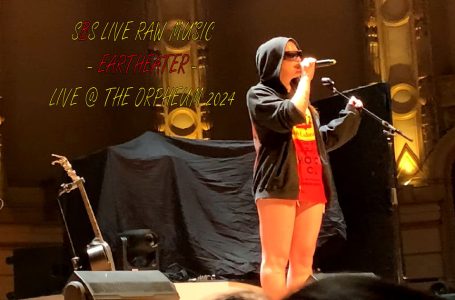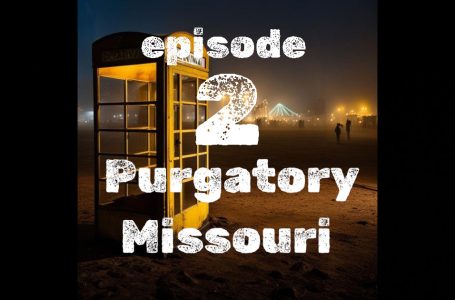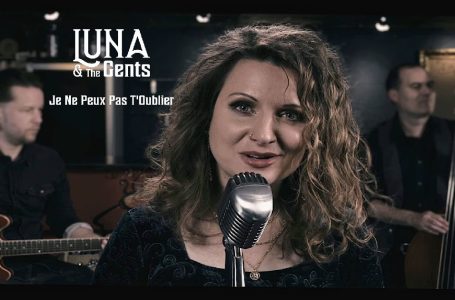Plike

I had a positively awesome time talking music with Em from the electro-project known as Plike – what a cool lady!
As we talk about all-things music, she’s extremely open and honest in her answers about what’s important in music and how the songs of Plike are formed and written…we talk personal-stuff, professional-stuff…and she’ll drop some beautiful knowledge into her answers here…definitely insight worth a read or two. I’ve always said it’s ‘inspiring to be inspiring’ – and there’s a very similar sentiment expressed her by Em of Plike when she says “I love how art inspires art” – I couldn’t possibly agree more with her on that and I know many of you out there certainly get that too.
That being said…she also made me realize we have something truly in common with each other through the early bond attached to a song called “Axel F.” I honestly hadn’t thought about that song for years, or in the way that Em made me think about it here…and after reading what she wrote about it, I realized I had the exact same experience right down to the cassette and all. Still not sure how I feel about that lol…but I think I consider it a good thing overall; it was and still is a solid electro-jam…even if it does come from the Beverly Hills Cop soundtrack!
Anyhow! I’m proud to introduce Plike to you out there that don’t yet know the project – and for you fans of Em’s music, welcome! She’s got fantastic things to say here – and lots of details about the music on her upcoming record Red Queen White Queen – check it out!
Interview With Plike
SBS: Plike! Stoked to have you here with us and thanks so much for taking the time to do this interview! As far as I understand it, you’re an electronic music producer/composer/performer based out of Austin, TX – but that’s all in the present-day…so how did you end up pursuing this particular style of music? What was the life-changing moment where everything became all about electro…what did you see/hear/who inspired you to do what you’re doing now? Every musician has that one true moment that set them on the path they end up on – so what brought you to electro music?
Plike: Thank you so much for having me, SBS! This is such a great question, and I’m totally cracking up because I just realized that the first electro track that I ever fell in love with was the theme from Beverly Hills Cop! When my sister and I were kids, my mom bought us the soundtrack on cassette tape and we’d play that track over and over and dance to it in the living room. Another one that really stands out from way back in the day was the original Doctor Who theme song. I grew up on a lot of 50’s and 60’s music, so I remember hearing those songs and just being mystified by the way they sounded. When I really got obsessed with music as a teenager, “Breathe” by The Prodigy was probably the first electro song that really blew me away. I was huge into grunge and metal, and songs like “Breathe” had the same dark tone and edge and energy that I loved in those genres. Then Fear Factory released Remanufacture (Cloning Technology), and that was a huge game changer for me. I was just so fascinated by that fusion of electronic and heavy metal. That was when I started seeking out more electronic music and started to find the artists who have influenced my music so much over the years, like Gary Numan and Portishead.
SBS: Of course…when we’re talking about electro-music, we suddenly enter a world of sub-genres. Is there a particular part of electro that you identify with more-so than others? When it comes to the music of Plike…what does a song have to have in order to make the grade and be identifiable to your own signature sound? What sets you apart from the rest of what’s happening out there in electro?
Plike: I definitely identify more with electro songs that have a darker atmosphere or tone. There’s just something about a dark atmosphere in electronic music that’s so haunting. When it comes to sub-genres, you’re so right! There are just so many different ones these days that I tend to let the music speak for itself. I love hardcore and industrial dark electro just as much as the slower, more chill styles like darkwave and witch house. When it comes to Plike, I think my obsession with contrasts is the defining factor for my sound. I always go for a balance of beauty and darkness in my music. I believe that art is a reflection of life, and life is beautiful and dark at the same time. I’m all about embracing the dark and having fun with it, which is probably why I love so many John Carpenter movies 😉
SBS: You’ve got a brand-new album coming out October 15th called Red Queen White Queen – what kind of details can you reveal about the upcoming release? Tell us something about the music on the record and what we can expect to hear as listeners…
Plike: I’ve put so much work into this album, I’m over the moon excited to share it with my listeners! When I wrote down the initial concept for the album, my idea was to explore the inner conflict that we all have to deal with on a daily basis. I wanted to explore a lot of themes related to this issue of inner conflict, and some of the themes I touched on are universal, like our innate fear of death, even if we’re actually at peace with it, or trying to feel and appear self-confident when we’re scared to death inside. This is a lyrical album, so I used a combination of lyrics and sound design to musically express these ideas.
SBS: As far as I’ve read and researched, much of this record also deals with the stigma surrounding mental illness…a topic that’s debated thoroughly in today’s politics and an issue that certainly affects many people out there directly and also by association. What made this an important issue in your own life Em – and what made it so important that you brought the subject right into the music on your new album Red Queen White Queen?
Plike: This will always be an issue that is very close to my heart. I honestly just hope that some of my music has been a help to those who are suffering and feel so alone. From the release of my first album 47th Helen, I’ve been open about my own battle with complex-PTSD. It’s definitely not a fun topic, but I really wanted to show others that we shouldn’t be ashamed of illnesses that we didn’t ask for, and frankly, would give anything to get rid of. My hope is that the public will become more and more knowledgeable as more and more of us have the courage to speak up. I hope that people will learn to see mental disorders the same way that they view migraines or epilepsy, just like any other illness.
SBS: Pinpoint for us how you chose to go about ‘speaking’ on this issue throughout the music. With a lot of electro-music being instrumental…are you singing directly on the songs, using vocal samples – or letting the music speak for itself? How do we as listeners get to the heart of the matter and understand where you’re coming from on the mental illness issue when it comes to the music?
Plike: This is a fabulous question! My last EP was mainly instrumental, although I used a lot of choral elements, but for Red Queen White Queen I wanted to explore these themes through the use of lyrics. I’m not s singer – I sure would love to be! 🙂 I’ll always be so thankful that I found VEELA’s amazing vocals through Black Octopus Sound, I used her voice extensively on the first three albums. But for Red Queen White Queen I really wanted to go for a bit of a different sound, so on this one you’ll hear Scottish vocalist Holly Drummond, who recently released a wonderful vocal kit through Black Octopus Sound. You’ll also hear the incredible vocalizations of Francesca Genco who released an amazing vocal library for Kontakt. It’s definitely tricky finding ways to speak out on these issues when you’re not a lyricist or vocalist! I think a lot of my themes come out in the music itself – pairing the sweet sound of a toy piano with a dark cello and gritty electronic drums gives a song a disturbing feeling, but adding the lyrics to that for this album I think was definitely necessary. And I always like for people to be able to take away the message that they get from a song, so I usually use lyrics and create phrases that say what I want to say, but can still be interpreted by the listener in a way that rings true for them.
SBS: Now…Em…don’t get me wrong…I think the subject of mental illness is certainly an important one…but…it’s just that…well…you know…some people out there might call that a pretty ‘heavy’ theme to have on a record…know what I mean? How did you go about creating the balance between promoting awareness, providing information and still creating something entertaining and fun to listen to? Was that a difficult process or something you had to focus on – or did it all just flow together naturally?
Plike: I completely agree, it’s definitely a heavy theme, and one that many listeners would not be able to relate to. I really believe that the balance comes when you pour your heart and soul into the music and really give it all you’ve got creatively. I’m a huge fan of Korn’s early work, I remember just being totally blown away that Jonathan Davis had the guts to speak out in his music against child abuse. That’s another incredibly heavy topic, but so many people related to those songs and even found solace in them. I think it’s this isolation that happens with mental illness, where you do feel so alone, that draws us to art that expresses what we’re going through. For this album, I was very focused on the themes, but I was equally focused on making sure that the music was fun to listen to. Does this beat fit? Is it the raddest beat ever? No? Rewrite! 😉
SBS: I’ve often asked people about music that’s tied to a certain cause or all-about one subject that speaks to people – how do you know the support for the music is there as well as support for the idea? There’s a tremendous amount of kind-hearted people out there in the world as I’m sure you know…and a lot of people that are going to find music that speaks on the issue of mental illness is something they want to naturally support…know what I mean? So how do you know that they really like you, for you, essentially is what I’m asking I suppose…or as long as they’re supporting it, hearing the message in some way, shape or form…maybe that’s all that really matters? Thoughts?
Plike: At the end of the day, I make music for others to enjoy listening to. That’s the driving force behind all of my art. There have been so many artists who have influenced me throughout my life, and so many albums that have been there for me through really great times and albums that have gotten me through some really hard times. When I think of those artists, I always wish I could thank them and tell them what their music has meant to me. There are so many artists who have been vocal about dealing with mental illness throughout the years, and I’m thankful to every one of them for paving the way. I’m thankful for songs like “Hurt” by Nine Inch Nails. Even if someone listens to “Hurt” and can’t relate to what Trent Reznor was feeling or going through, if they connect with the sound of it, or if it inspires them to create something of their own – a painting, or a film – that’s what music is all about. I love how art inspires art.
SBS: What was the highlight moment from recording Red Queen White Queen and what made it memorable? Was there anything you learned from recording this album that will help you out when you go to make the next record?
Plike: Honestly the highlight moment for this album has been the incorporation of sound design. I’m a huge gamer, and I’m a huge fan of more video game soundtracks than I can count. Recently I was contracted to be the Lead Audio Designer for Oak Moon Games, an indie game studio in the UK. Creating so much audio design for the game has inspired me to get really creative with sound in my music. I’ve used quite a bit of sound design in my music in the past, but I think people will really enjoy the sound design in this album. I’ll definitely be continuing to explore new sounds and atmospheres!
SBS: I’ll leave this question as wide-open as it gets and let you define the answer however you’d like to…what is it about the freedom of expression you find in electro-music that pulls you to it and drives you to create it yourself?
Plike: The thing I love most about electro-music is that there are no boundaries! Before I started writing electronic music, I played bass, drums, and piano. I also took guitar lessons for a few years. I always loved the organic awesomeness of sitting down at a piano and playing, or playing on a drum kit, but electronic music has no limitations. I can compose complex orchestral string arrangements and I can write drum beats that would be impossible for me to play in real life. I love collaborating with other musicians, and I’m actually looking forward to doing a collaboration in the next few months with an incredibly talented fellow indie musician named Highfield, but I also love being able to write a song from start to finish all on my own. There’s a wonderful feeling of independence about it.
SBS: What direction do you see yourself taking the music of Plike in from this point on? Will there always be a theme or subject woven into the tapestry of the music…or is there another way you’d like to approach recording a future record? What’s the future of Plike’s music look like Em?
Plike: I think that my albums will always have a general concept behind them, even if it’s a subtle one. The inspiration for my last EP Empty Mirrors was simply my lifelong fascination with all things paranormal. A little known fact about that album that some of my listeners might find fun is that every vocal sample, except for the spoken word samples, are reversed. So every female vocal “ooh” and “ahh” on the album is reversed from its original state. That was a lot of fun to do! I’d really like to go harder and heavier on my next album, and I’ve been experimenting with sampled distorted guitar sounds, as well as sound design and vocal FX. I’d love to bring in another producer on the next album who could bring in more of those heavy elements!
SBS: If there was one specific thing you wanted people to take away from listening to Red Queen White Queen – what would you say it is? Do you have any specific upcoming plans to support the release of the new record and spread the good word?
Plike: I’m always so excited to hear people’s takes on the songs, and I’m really excited to hear what the listeners’ impressions of Red Queen White Queen will be! I hope so much that this album will inspire and speak to people on a lot of different levels, but mainly I hope that they’ll enjoy a track or two the same way I do when I stumble across a new song and fall in love with it! I’ve been in contact with an indie film studio in Los Angeles that’s very interested in using a few of the tracks for one of their films that’s in production, so fingers crossed for that! 🙂
SBS: Thank you once again Em – truly appreciate your time & efforts answering all these rambling questions! Because any given interview can always cover a range of topics and still miss something important along the way – we always like to give our guests the opportunity to say anything they’d like to here at the end in the ‘SBS Open Floor’ – so have at it! Anything at all! Thanks again Plike!
Plike: Thank you so much for your amazing support of independent artists, SBS! This interview has been such a pleasure! And a big thanks to all of my listeners out there – I wouldn’t be making music if it wasn’t for you! 🙂 Much love!
Find out more about Plike at YouTube: https://www.youtube.com/channel/UCvgHSfR_-8-J4NgzxKbpu6Q
We’ve got questions, you’ve got answers – be our next interview guest at sleepingbagstudios by clicking here!






